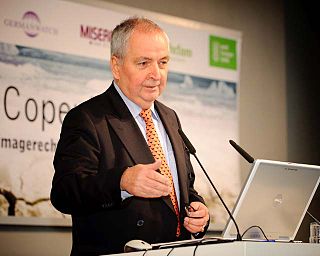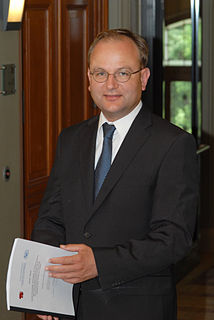A Quote by Klaus Topfer
Protecting biodiversity is just as important and critical to the survival of mankind as stabilizing the climate. Species protection and climate are interdependent.
Related Quotes
Despite the international scientific community's consensus on climate change, a small number of critics continue to deny that climate change exists or that humans are causing it. Widely known as climate change "skeptics" or "deniers," these individuals are generally not climate scientists and do not debate the science with the climate scientists.
The truth is that we're at a critical juncture in the history of our species and if we don't act soon, we could inhabit a world we don't recognize anymore. But the most important truth is that we are capable of stopping climate change before the worst of its consequences are locked in. The solutions exist - all we need is the will to do something about it.
We have a very old conservation movement, particularly in the United States, which has focused on campaigns to protect endangered species: the spotted owl, the old-growth forest. But usually it stops there. To me, biodiversity is the full spectrum. Species conservation is not only about wilderness conservation. It?s also about protecting the livelihood of people even while changing the dominant relationship that humans have had with other species. In India, it?s an economic issue, not just an ecological one.

































